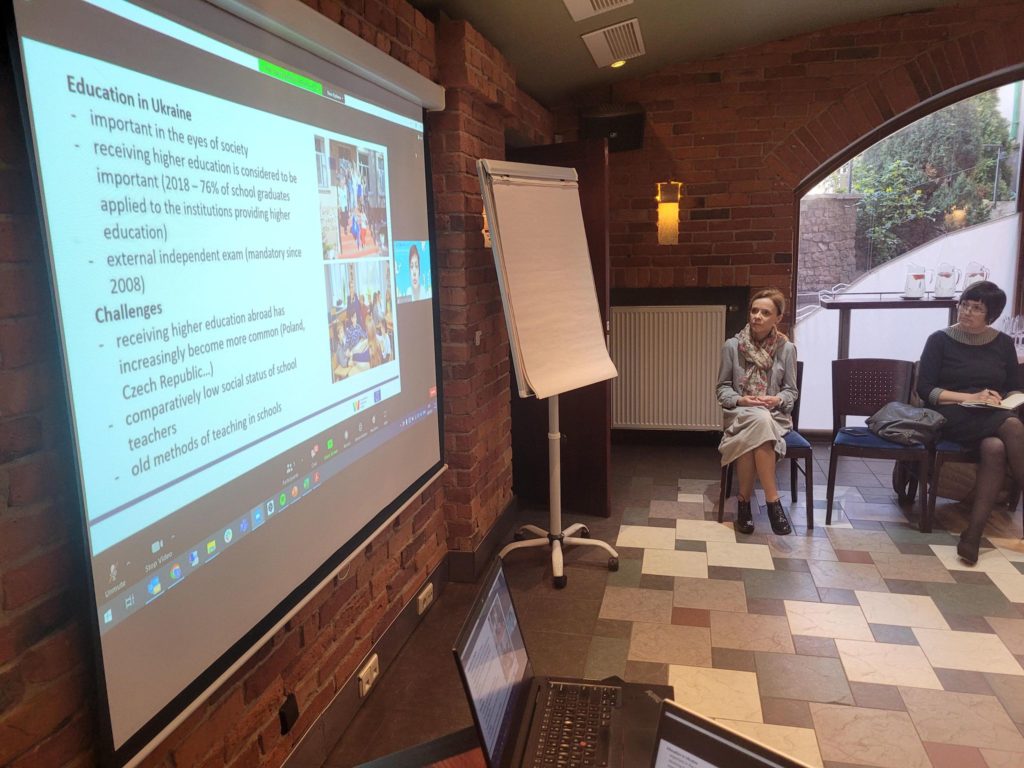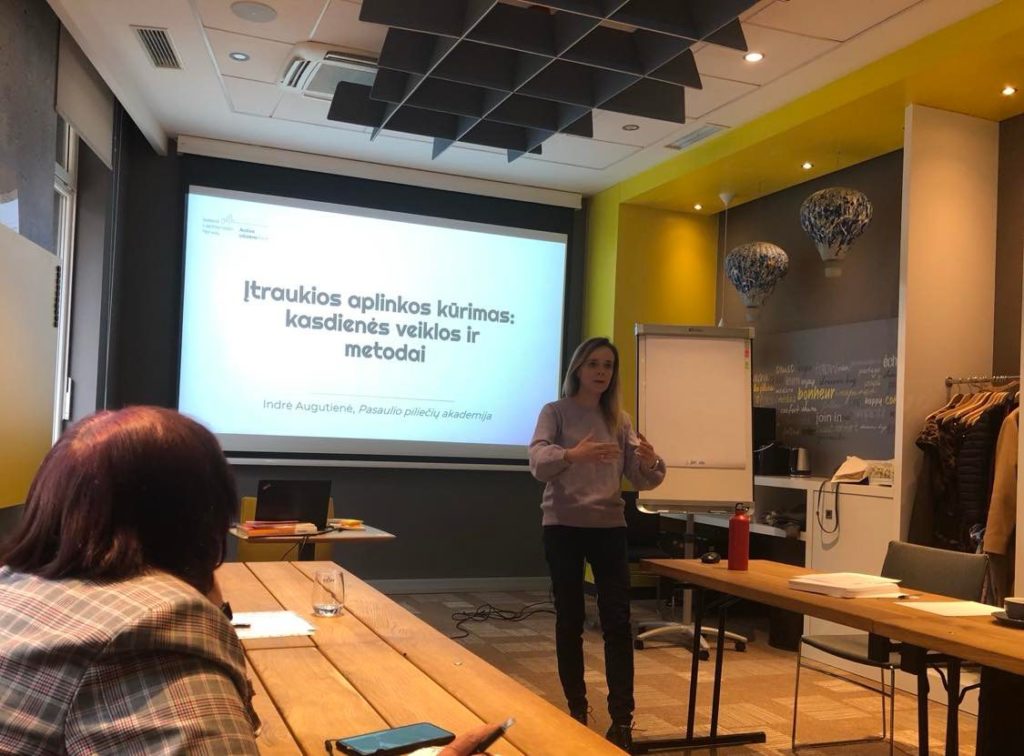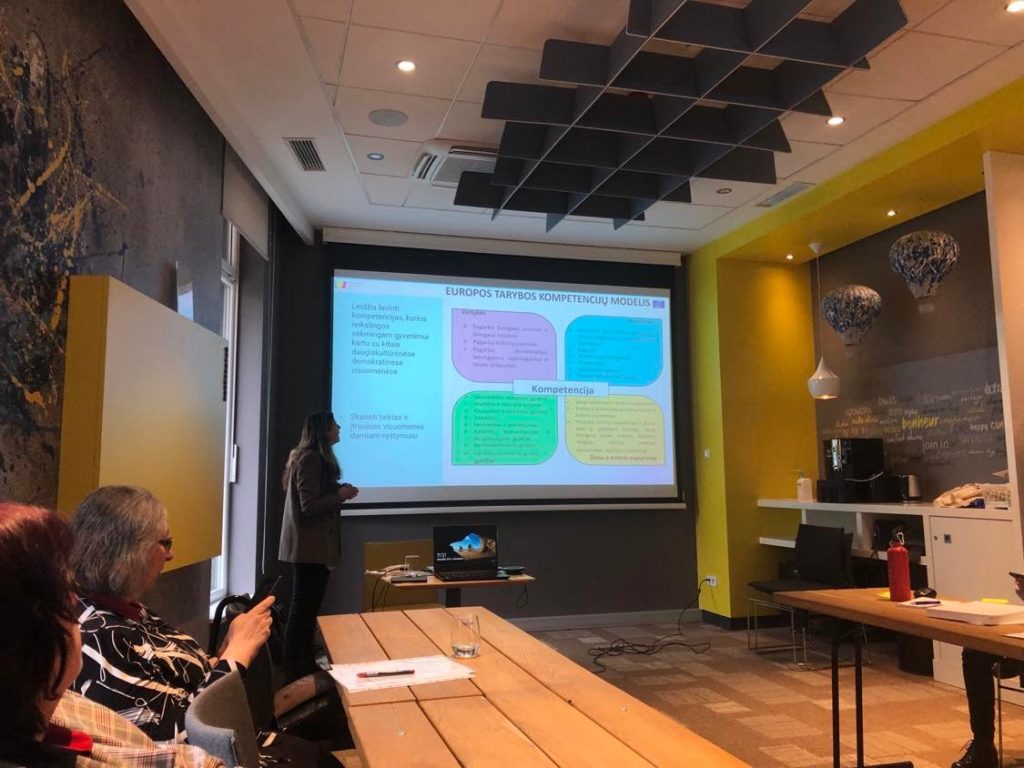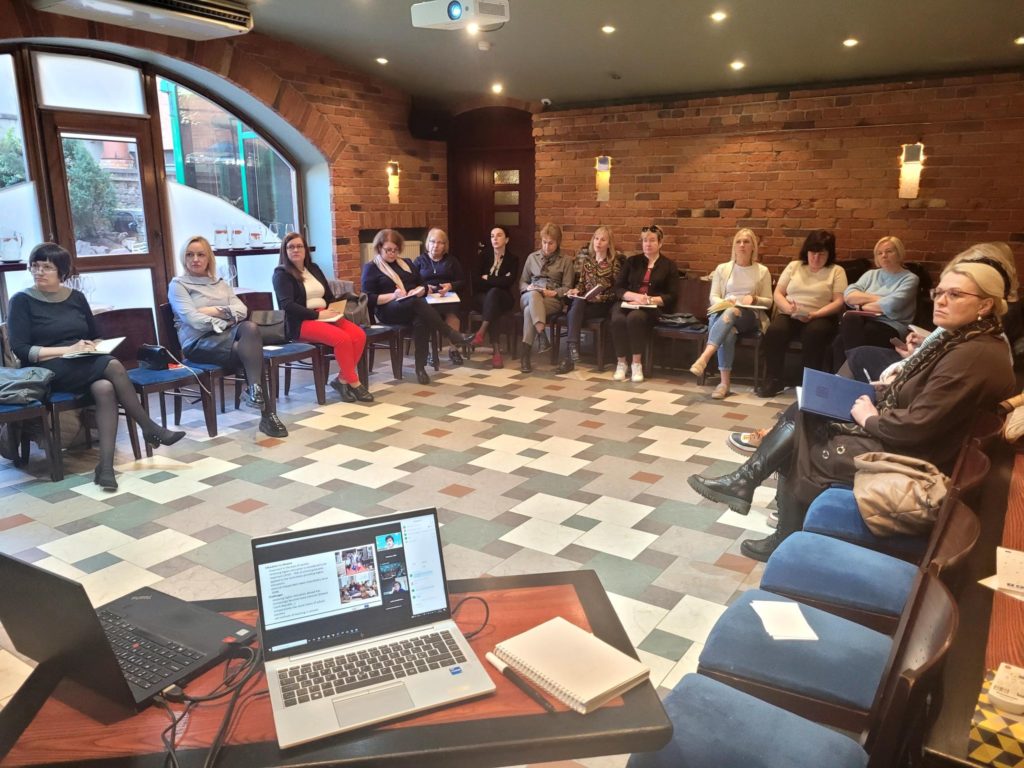With the number of Ukraine refugee children in Lithuanian schools rising, Partners have reorientated two 1-day awareness raising seminars on citizenship education to focus on practices that support inclusion in teaching and learning process.
The seminars, held in Vilnius (20th of April) and in Kaunas (21st of April) were attended by 29 educators including school, National Agency, non formal education centres and municipality representatives.
The seminars were organized within the project “Education under the Magnifying Glass of NGOs” by the National Network Education institutions, the European Wergeland Center, Europe House and Global Citizens Academy.
Below are the main highlights of the events and recommendations.
Opening address by Assoc. Prof. Krystyna Chushak, Coordinator of the Democratic School Program at the European Wergeland Center; Head of the Education Policy Department of the Lviv Teacher Training Center
Assoc. Prof. Khrystyna Chushak introduced the education system of Ukraine and underlined the importance of education in time of war “Education should not stop – it is the bridge to a normal life” she said.
But what kind of methods and approaches can help create a welcoming and safe learning environment in a time of crisis?
According to Khrystyna and Ukrainian teachers working with internally displaced children the following methods and approaches have proven useful:

Understanding the concept of inclusion and safe learning environment
Concepts were further explored by reflecting on the definitions of “Inclusion” including the ones provide in the Norwegian core curricula presented by EWCs Valentina Papeikienė. We also looked at the different facets of school/educational environment that need to be considered – i. e. methods, physical spaces, culture and policies, partnerships, communication.
Importantly we had the possibility to reflect on the experiences of educators present at the seminar and the Heros’ school in Kaunas that employs several methods to enhance school culture and promote a concept of a welcoming school for all. For example, the organisation asks all teachers to make time for professional self-reflection and encourages teachers to work together on regular basis.
Focusing on the approaches used in intercultural education, Indrė Augutienė of the Global Citizens Academy introduced the Pyramid of Hate and the Iceberg of Culture, reminding the participants that the methods we use should aim to learn and understand more about part of culture that seems to be hidden at first. We also tried an instrument to spark discussion and conversations “Socialinis Suffleris” and the exersise “Take a step forward” from Compass a Council of Europe Manual.
Conclusions and Recommendations
Possibly the most gratifying part of the seminars was the opportunity to hear the voices of educators that are welcoming students from Ukraine in Lithuanian schools. Below are some recommendations that stem from our vigorous discussions.
Recommendations for national, local and other institutions engaging in Teacher training
Provide opportunities for teachers to engage in peer-to-peer learning and experience exchange, with a focus on what is being done/ what works and is possible in the local context and in view of national legislation.
Reassure schools that they are correct to apply flexible approaches that allow to cater to the needs of the students and their families. A myriad of practices is being applied to cater to needs of students and their families. Such flexibility is not a day-to-day practice for many schools. In a high level of ambiguity School communities need to know that they on the right track.
Clarify and disseminate information on assessment and recognition of results. This is a core concern for schools and parents – better disseminated information from National/ local education authorities may be warranted.
Continue to promote the concept of Inclusion For All and support schools to critically reflect on inclusion at their institution (including on bias both negative and positive).
Recommendations for schools and other education institutions
Show flexibility, focusing on the needs of the students and their families.
Safe and welcoming learning environment first, academic topics and results second.
Recognise diversity as a value.
Recognise students as allies in the teaching and learning process.
You are not alone! Network with schools/ organisations in your region.
We leave you with memories of the two events and hope that our experiences will serve as an inspiration!



